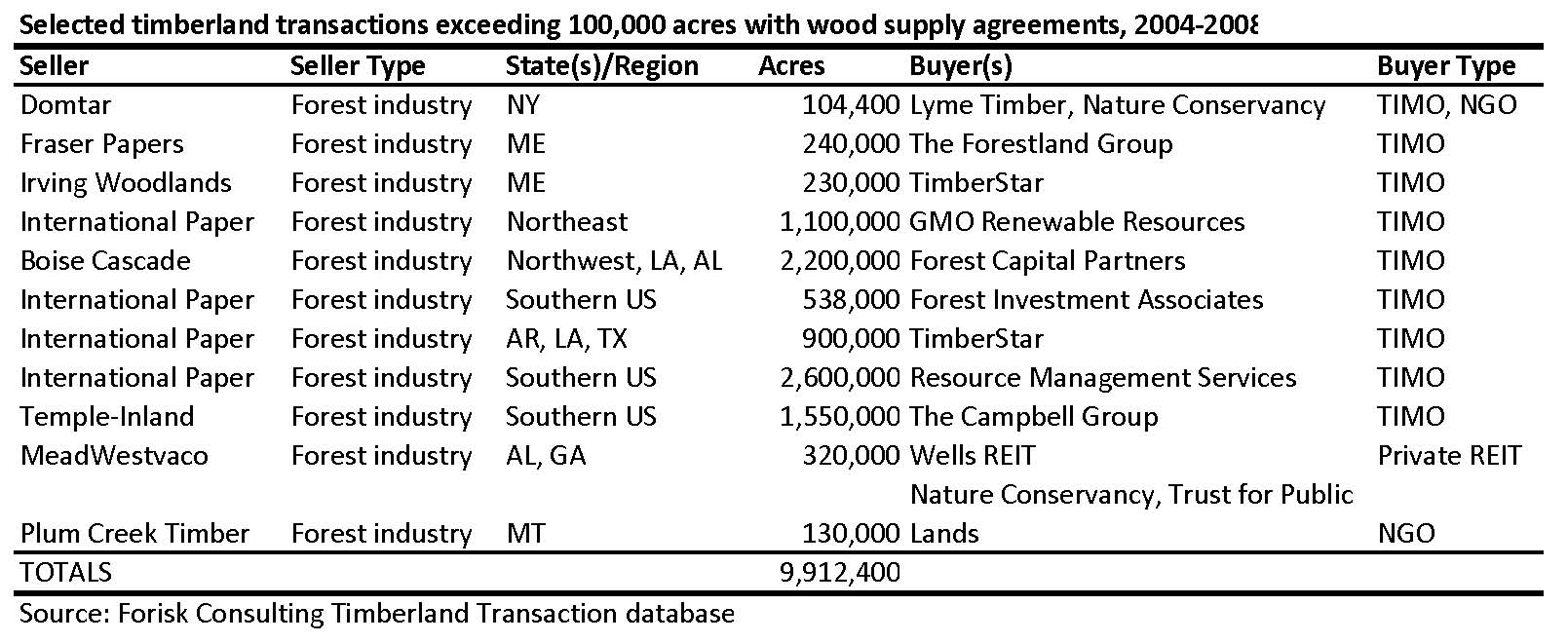Securing sustainable and reliable sources of raw material is a critical component to mitigating operational risk and obtaining financing for wood-consuming bioenergy projects. Yet, this remains one of the most elusive and challenging elements for bioenergy project managers and investors. As of April 14, 2010, only 4 projects of the 130 projects captured in the March/April edition of Wood Bioenergy South had publicly-verifiable wood supply agreements in place. Another 3 projects had signed MOUs or letters of intent with wood suppliers. A handful of others maintained potential agreements in confidence. In sum, 5.4% of publicly-announced wood-using bioenergy projects had verifiable multi-year agreements or MOUs in place.
Traditional forest industry participants do not have a built-in bias against wood supply agreements. For all of the challenges they can present – establishing viable volumes against verifiable specifications, implementing and maintaining pricing mechanisms – they provide a useful risk management and negotiating tool. Forest industry sellers of timberlands often include wood supply agreements of 10 years or more in transactions with institutional buyers, as reflected in key deals summarized in the table below.
Bioenergy developers crave such agreements, yet timberland owners have approached biomass wood supply agreements with caution. In practice, traditional wood supply agreements have cemented existing forest-to-mill relationships, where buyers and sellers have long known each other. For bioenergy markets, participants continue their courtship. Sellers of wood want a better understanding of the value they are providing – what is wood actually worth to a bioenergy producer? – while buyers of wood want long-term agreements with, if possible, fixed pricing.
Recent examples of bioenergy projects from within the forest products industry highlight the benefit of having ready access to raw materials and experience with wood procurement. In April, Graphic Packaging announced the expansion of its bioenergy production and usage at its Macon, Georgia facility (press release). In May, The Westervelt Company announced a bioenergy agreement with Alabama Power which leverages Westervelt’s Moundville, Alabama lumber facility to produce electricity (press release).


Leave a Reply